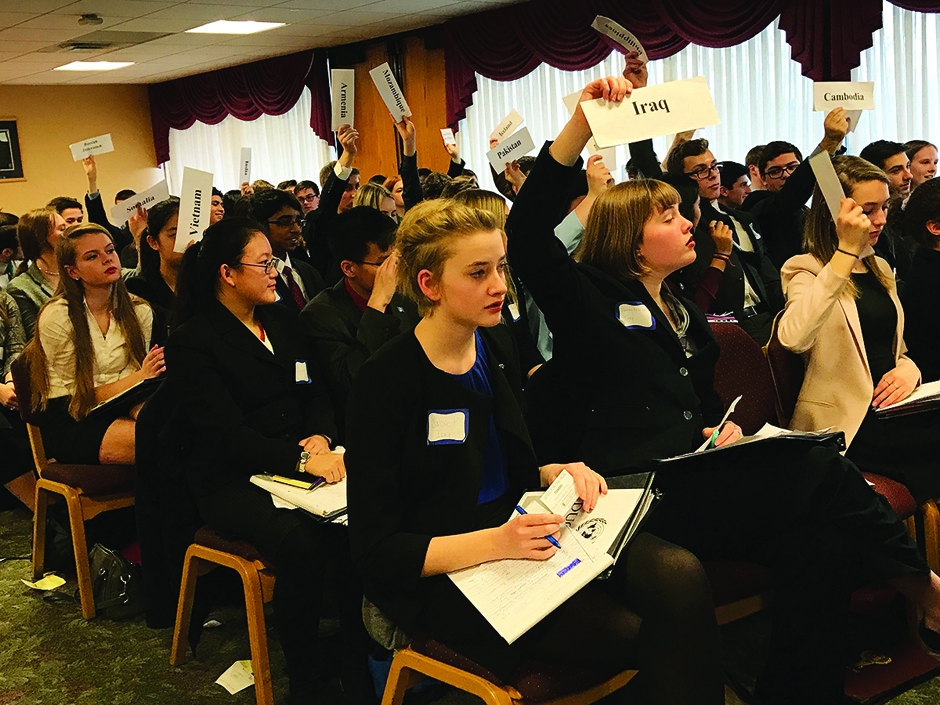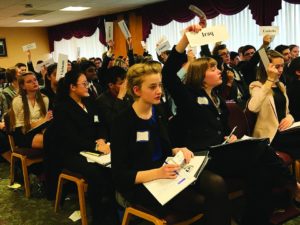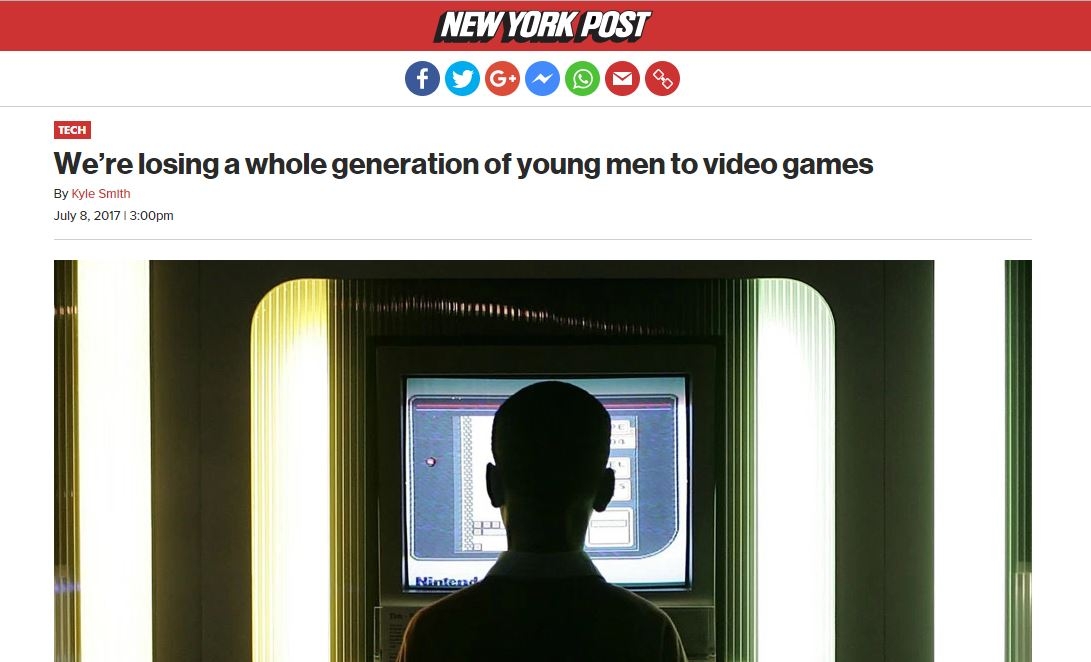
High school students participate in the Model United Nations mock conferences Jan. 27. The top three student delegates split a $6,000 purse of scholarship money.

High school students participate in the Model United Nations mock conferences Jan. 27. The top three student delegates split a $6,000 purse of scholarship money.
Raymond Arke | Asst. News Editor
Six thousand dollars worth of Duquesne scholarship money were up for grabs by local high school students trying to solve the world’s problems at an event at Duquesne Jan. 27.
The Duquesne Model United Nations club (DUQMUN) and class at Duquesne hosted a mock conference for nearly 275 high school students from 21 schools.
Awards were given to what an independent panel of judges deemed the top three delegates of the entire conference and the top two delegations in each committee. The top three delegates were awarded scholarships to Duquesne in the amounts of $3,000, $2,000 and $1,000 respectively. The winners were announced at the conclusion of the event, according to Rianna Lee, a sociology and international relations double major, the president of DUQMUN.
Model United Nations is “an authentic simulation … [that] introduces students to the world of diplomacy, negotiation and decision making,” according to the United Nations Association of the United States.
At a regular conference, high school students role-play each of the countries represented in the United Nations. They are divided into separate committees where they debate various topics and attempt to pass resolutions
At Duquesne, Model UN is offered as both a club and a class.
“Model UN at Duquesne is a class and club hybrid,” Lee said. “You can attend the weekly meetings just as a club member, or you can attend the weekly meetings in addition to one collegiate level conference and receive class credit through either the Political Science or International Relations departments.”
Lee detailed the lengthy process that is required to host the conference.
“We start planning for the DUQMUN conference as soon as we return from summer break in August,” she said.
The club then decides which committees to have and what topics the committees will focus on. Members also have to spend time researching.
“Once topics are picked, everyone in the club/class is tasked with researching a topic and writing a summary that includes the current state of the problem, the history of the problem if applicable, what … solutions have been enacted or proposed already and what the outcome was,” Lee said.
Ashley McIntyre, a senior international business and supply chain major, served as the Secretary General for the conference.
“I got to help pick the topics the students would be discussing, along with the rest of the team,” she said. “It was also my duty to welcome the students in an introductory speech and get them excited for the day.”
McIntyre was also in charge of moderating the Human Rights Committee and leading students in debates over topics pertaining to the committee. She oversaw the awards ceremony at the end of the conference as well.
Zachary Ference, a sophomore history major, was the chair for DISEC, the Disarmament and International Security committee. He joined the club last year because of his love for history.
“I’ve always had an interest in the UN and felt that this was the best way to gain some knowledge about it short of taking a class dedicated to its history,” he said. “The club has given me the chance to practice debating and public speaking when we’re not focusing on running a conference.”
Lee said getting involved with DUQMUN is important in the current day and age.
“Model UN is important because we live in an increasingly globalized society, where connecting with anyone or anything in the world is no more than a click or tap away,” she said.
Being able to civilly debate and engage with a global world is crucial to solving ongoing problems, Lee said.
“It is essential, now more than ever, to stress the importance of effective communication, understanding, and cooperation between nations and people as we face growing social, political, cultural, and environmental issues,” she said.
The club meets on Tuesdays from 4:30-5:45 p.m. in College Hall, room 642.



